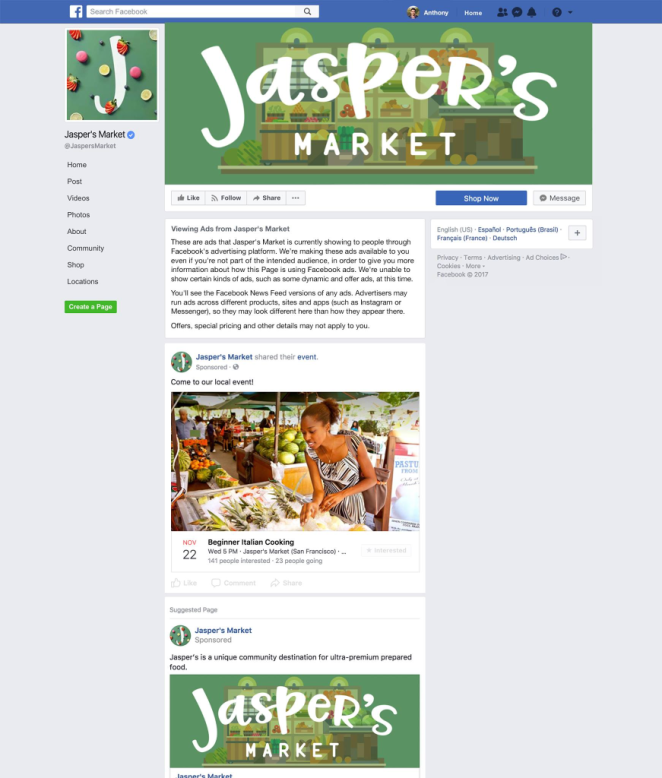by Rob Goldman, VP of Ads
When it comes to advertising on Facebook, people should be able to tell who the advertiser is and see the ads they’re running, especially for political ads.
That level of transparency is good for democracy and it’s good for the electoral process. Transparency helps everyone, especially political watchdog groups and reporters, keep advertisers accountable for who they say they are and what they say to different groups.
In September, our CEO Mark Zuckerberg talked about the initial steps we were taking to help protect the integrity of elections, both in the United States and around the world. Earlier this month, our VP of Public Policy Joel Kaplan provided additional details on what we’re doing to make advertising more transparent, increase requirements for authenticity and strengthen our enforcement against ads that violate our policies.
Today we’re sharing an update on the progress we’ve made towards accomplishing those tasks.
ADDITIONAL TRANSPARENCY FOR ALL ADVERTISING
We’re going to make advertising more transparent, and not just for political ads.
Starting next month, people will be able to click “View Ads” on a Page and view ads a Page is running on Facebook, Instagram and Messenger — whether or not the person viewing is in the intended target audience for the ad. All Pages will be part of this effort, and we will require that all ads be associated with a Page as part of the ad creation process. We will start this test in Canada and roll it out to the US by this summer, ahead of the US midterm elections in November, as well as broadly to all other countries around the same time.

We know how important it is to our community that we get this feature just right — and so we’re first rolling it out in only one country. Testing in one market allows us to learn the various ways an entire population uses the feature at a scale that allows us to learn and iterate. Starting in Canada was a natural choice as this effort aligns with our election integrity work already underway there.
During this initial test, we will only show active ads. However, when we expand to the US we plan to begin building an archive of federal-election related ads so that we can show both current and historical federal-election related ads. In addition, for each federal-election related ad, we will:
- Include the ad in a searchable archive that, once full, will cover a rolling four-year period – starting from when we launch the archive.
- Provide details on the total amounts spent.
- Provide the number of impressions that delivered.
- Provide demographics information (e.g. age, location, gender) about the audience that the ads reached.
POLITICAL ADVERTISERS WILL HAVE TO VERIFY THEIR IDENTITY
As Joel Kaplan mentioned, we’re going to require more thorough documentation from advertisers who want to run election-related ads. We are starting with federal elections in the US, and will progress from there to additional contests and elections in other countries and jurisdictions. As part of the documentation process, advertisers may be required to identify that they are running election-related advertising and verify both their entity and location.
Once verified, these advertisers will have to include a disclosure in their election-related ads, which reads: “Paid for by.” When you click on the disclosure, you will be able to see details about the advertiser. Like other ads on Facebook, you will also be able to see an explanation of why you saw that particular ad.
For political advertisers that do not proactively disclose themselves, we are building machine learning tools that will help us find them and require them to verify their identity.
We remain deeply committed to helping protect the integrity of the electoral process on Facebook. And we will continue to work with our industry partners, lawmakers and our entire community to better ensure transparency and accountability in our advertising products.


